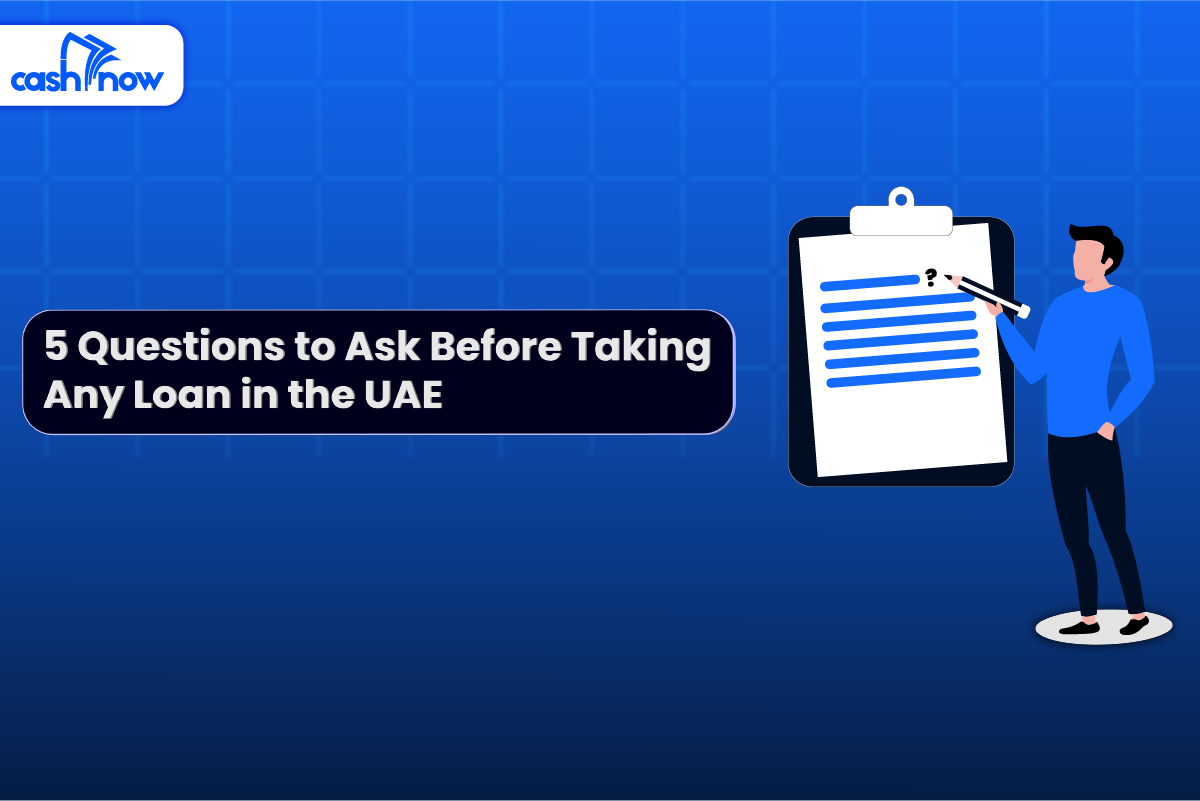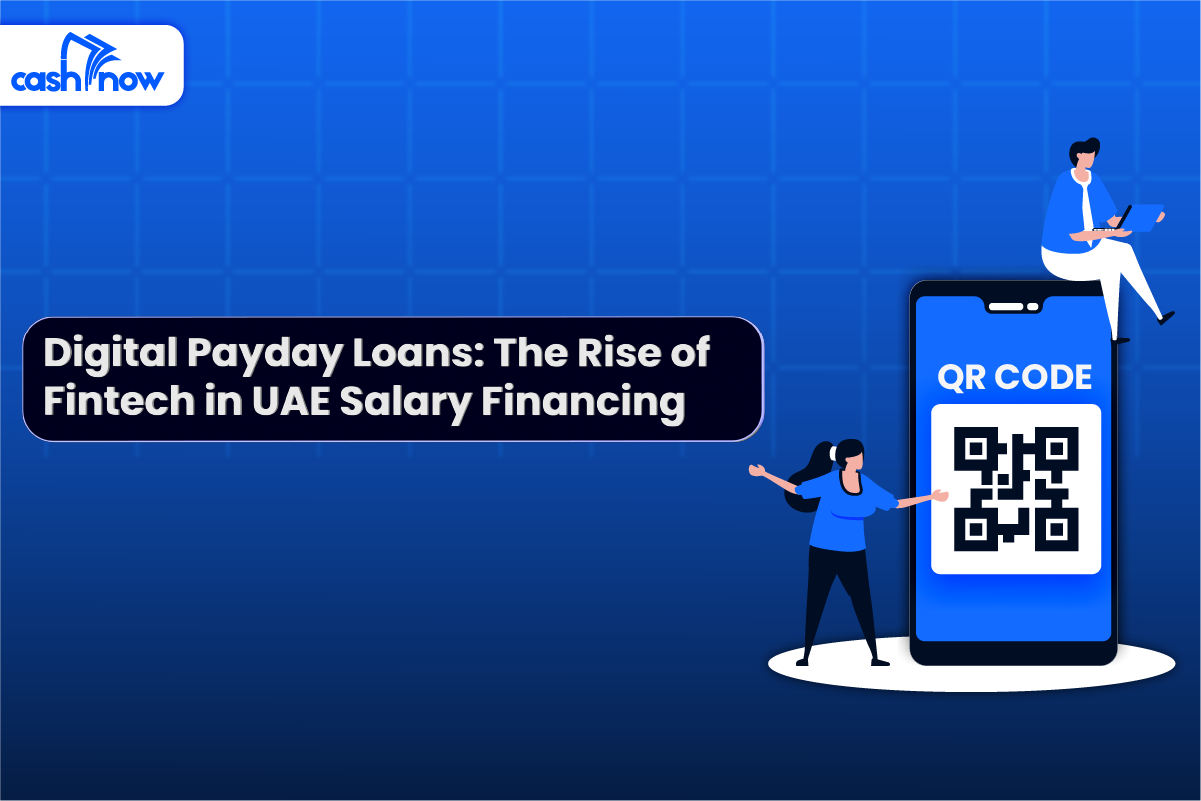UAE Lending Regulations You Should Know Before Applying

Smart borrowing begins with knowing the right lenders and the right way to borrow.
Sure, borrowing is mostly about comparing the interest rates and charges to make sure the loans are not heavy on your pocket, but a fair share of thought must go into understanding the tightly regulated financial environment to ensure you are borrowing from authorized sources.
In fact, many regulatory requirements apply to borrowers as well as lenders.
The Central Bank of the UAE plays a critical role in overseeing lending practices. It has strict regulatory requirements for both lenders and borrowers to operate within a well-defined legal framework.
For loan applicants, this means clear guidelines around credit scores, debt limits, salary transfers, and more.
This article breaks down the key lending regulations you should know.
Who regulates lending in the UAE?
The Central Bank of the United Arab Emirates (CBUAE) is the country’s top financial authority and the primary regulator of lending practices. As the governing body, the CBUAE outlines, directs, and enforces regulatory requirements to ensure fair, transparent, and legally compliant lending across personal, auto, mortgage, and business loans.
The first and most basic step for lenders, i.e., financial institutions and the FinTech providers, is to be licensed by the Central Bank. The licensing practice is kept in place to ensure that only authorized institutions with proper financial infrastructure and governance can operate in the market.
Even digital-first platforms and peer-to-peer lending apps must comply with regulatory frameworks or risk being shut down.
Lately, most of the Central Bank’s efforts have gone into strengthening consumer protection, fighting predatory lending, and improving transparency in loan disclosures. So, much tighter controls on interest rates, clearer fee structures, and mandatory credit checks are now being enforced, all aimed at protecting borrowers from taking on unsustainable debt.
The end goal is for financial institutions to act more responsibly, and for borrowers to be fully informed and protected throughout the lending process.
Key lending regulations to be aware of
Here are the regulatory rules around borrowing limits, repayment terms, and eligibility checks that borrowers need to understand before applying for a loan in the UAE:
Loan caps and debt burden ratio (DBR)
First and foremost, the Central Bank has set a Debt Burden Ratio (DBR) rule, which states that your total monthly loan repayments cannot exceed 50% of your monthly income. Lenders are required to check this ratio, and if it exceeds the limit, your loan application will be rejected.
This rule applies to all types of debt, including personal loans, car loans, mortgage repayments, and even credit card minimum payments.
Maximum loan tenure limits
Loans stretched over long periods can lead to financial strain due to prolonged debt and higher interest costs. To encourage manageable repayment schedules, the UAE imposes strict limits on loan tenures. Here are the maximum terms for each loan type:
- Personal loans: Maximum of 48 months
- Auto loans: Up to 60 months
- Home or mortgage loans: Up to 25 years
Salary transfer loans
Salary transfer loans are very popular among salaried employees in the UAE, as banks offer these loans at lower interest rates with higher approval rates. They're relatively easy to obtain, but they require borrowers to route their monthly salary directly into the lending bank’s account.
While the process is designed to simplify loan access, the heavy reliance on employer involvement can create challenges, especially when changing jobs, such as the need to settle the loan early or reapply with a new salary transfer arrangement.
Credit Bureau checks (Al Etihad Credit Bureau)
All lenders in the UAE are required to check an applicant’s credit history through the Al Etihad Credit Bureau (AECB) before approving any loan.
So, your credit score and repayment history will determine your eligibility and loan terms. A low score or history of missed payments can lead to rejections or higher interest rates. Check your AECB report before applying for any loan to avoid surprises.
Early settlement fees and prepayment penalties
Early settlement charges are regulated in the UAE, so if you repay your loan early, you’ll need to pay fees capped at 1% of the remaining loan amount or AED 10,000, whichever is lower. Knowing this in advance helps you calculate whether early repayment will save you money, especially for long-term loans like mortgages or car financing.
What are the regulations around interest rates and fees
Here are the rules that the UAE Central Bank enforces to protect borrowers from excessive charges and unclear pricing:
Interest rate caps and types
There are two types of interest charges in the UAE: flat rate and reducing balance. Lenders may either charge a constant rate on the full loan amount for the entire tenure or apply a reducing rate on the outstanding balance.
While the Central Bank does not impose a fixed cap on interest rates, it actively monitors market competitiveness to flag and restrict unreasonable rates.
Disclosure requirements
A strict regulatory requirement for lenders in the UAE is to disclose all fees, charges, and interest structures upfront, ensuring transparency and enabling customers to make informed financial decisions. These disclosures must include the Annual Percentage Rate (APR), processing or arrangement fees, insurance charges (if bundled), and late payment penalties.
Hidden charges to watch for
Despite disclosure rules, some borrowers overlook the fine print and unknowingly agree to terms that lead to inflated installments or unexpected charges.
To avoid this, always clarify anything you don't fully understand, request a clear breakdown of all fees, and watch out for hidden costs such as insurance add-ons (like job loss or life cover), account maintenance fees tied to salary transfer loans, and restructuring fees for modifying payment plans.
Consequences of non-compliance for lenders and borrowers
Lending in the UAE is governed by strict regulations, and both lenders and borrowers face serious consequences for failing to follow them. Here’s what you should know:
Penalties for lenders who break the rules
The Central Bank regularly audits financial institutions to ensure compliance and protect consumer rights. Violations that are subject to penalties include unauthorized lending, misleading terms, overcharging beyond regulatory limits, and failure to properly assess credit risk.
Institutions that breach the UAE Central Bank’s lending guidelines can face hefty fines, sanctions, suspension or revocation of licenses, public warnings, and restrictions on onboarding new customers.
Legal risks for borrowers who default
Loan defaults in the UAE can lead to legal consequences, starting with legal notices and debt recovery proceedings. In older or legacy loan agreements, bounced security cheques may trigger criminal cases, and unpaid debt can lead to travel bans, civil court rulings, or asset seizures, depending on the size of the loan and the nature of the default.
To avoid these consequences, borrowers must communicate with lenders at the first sign of financial trouble because most banks and platforms now offer debt restructuring plans.
How FinTechs like Cashnow simplify compliant borrowing
Traditional banks still dominate the UAE lending landscape, but here’s how FinTechs like Cashnow are reshaping the lending experience while staying within the Central Bank's strict compliance framework:
Digital-first, regulation-aligned experience
Cashnow is built from the ground up to align with UAE Central Bank regulations. It's a fully digital platform that eliminates paperwork and delays, offering a seamless application process with built-in compliance checkpoints that ensure borrowers meet eligibility criteria before applying, saving time and reducing rejection rates.
Transparent lending with upfront information
One of the biggest pain points in borrowing is hidden charges. Cashnow solves this with full transparency on interest rates (flat or reducing), fees, and repayment schedules are presented upfront. There are no hidden charges or surprises whatsoever.
You can also use Cashnow’s loan calculator to get an upfront breakdown of the amount you plan to borrow.
Seamless credit bureau integration
Cashnow integrates directly with the Al Etihad Credit Bureau (AECB) via API, enabling instant, secure access to a borrower’s credit history. Alternatively, Cashnow uses alternative risk assessment methods to reduce the risk of over-lending or non-compliance.
Instant verification and loan disbursement
Cashnow simplifies the verification process by automatically verifying employer or income proof using an official Emirates ID. The app guides users to upload the required IDs, the verification of which is done instantly, followed by disbursement within minutes.
Early repayment & fee visibility
Cashnow clearly displays prepayment options and early settlement fees, if any. Borrowers can simulate early closure scenarios and calculate how much interest they’ll save, all without hidden terms or unexpected penalties.
Conclusion
Staying informed is key to navigating the UAE’s lending landscape, whether you’re a borrower or a lender.
For borrowers, understanding the rules around eligibility, interest rates, fees, and repayment terms empowers smarter financial decisions and helps avoid costly mistakes.
Most importantly, always borrow only from authorized and compliant sources, whether it's a traditional bank or a digital FinTech platform.
Cashnow is a fully digital FinTech provider offering instant microloans to individuals in urgent need of cash. We take care of all compliance requirements, so you can access funds quickly and confidently, without the paperwork or the worry.




.webp)
.webp)



